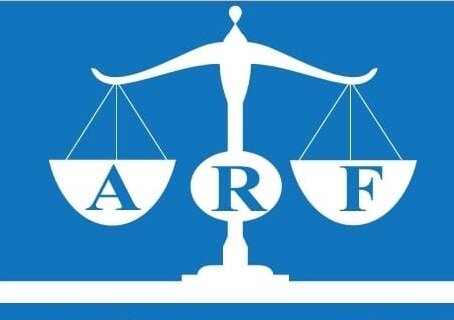Best Military Law Lawyers in Uganda
Share your needs with us, get contacted by law firms.
Free. Takes 2 min.
Or refine your search by selecting a city:
List of the best lawyers in Uganda
About Military Law in Uganda
Military law in Uganda is governed by several statutory instruments, including the Uganda Peoples' Defence Forces Act 2005. The laws are designed to regulate the behavior, rights, and responsibilities of service personnel in the Ugandan military. They cover a broad spectrum of issues, from the procedural conduct in courts-martial to the ethical obligations of military personnel. Military law ensures that discipline and order are maintained within the armed forces, while also protecting the rights of those serving.
Why You May Need a Lawyer
Individuals may require legal assistance in the following situations within the realm of military law:
- If facing charges under the military justice system, such as court-martial.
- When dealing with administrative actions or disciplinary measures that may affect their military career.
- In instances of discrimination, harassment, or rights violations within the military.
- When transitioning from military to civilian life and needing guidance on veteran benefits or employment rights.
- For legal support in understanding military contracts, pensions, or service terms.
Local Laws Overview
Key aspects of local laws pertinent to military law in Uganda include:
- Courts-Martial: The military justice system includes court-martial proceedings which are specialized military courts that handle offenses committed by service members.
- Disciplinary Code: The UPDF Act offers a comprehensive framework of offenses and penalties applicable to military personnel.
- Rights and Responsibilities: The law provides for the rights of military personnel, ensuring fair treatment, while equally highlighting their duties and obligations.
- Appeals and Reviews: Opportunities exist within the military legal framework for appealing decisions or seeking reviews of previous judgments.
Frequently Asked Questions
What is a court-martial?
A court-martial is a judicial court used to try members of the armed services accused of serious breaches of military law.
Can civilians be subject to military law in Uganda?
Primarily, military law applies to service personnel, but in certain circumstances, civilians employed by or accompanying the military may also be subject to military jurisdiction.
What rights do military personnel have during a court-martial?
Military personnel have rights similar to those in civilian courts, including the right to a defense attorney, the right to call witnesses, and the right to appeal judgments.
How can I appeal a military court decision?
Appeals must be lodged through specified channels within the military legal system, often involving a higher military court for review.
Are there legal protections against discrimination in the military?
Yes, military personnel are protected against discrimination and have avenues for recourse if they face biased treatment or harassment.
How does military law address misconduct?
Misconduct is addressed through a series of disciplinary procedures, which can range from reprimands to court-martial trials depending on the severity of the offense.
How are military law attorneys different from civilian attorneys?
Military law attorneys specialize in the unique legal system and codes that govern military personnel, which are distinct from civilian legal frameworks.
What is the role of the military ombudsman in Uganda?
The ombudsman addresses complaints and issues reports regarding injustices or maladministration within the military, aiming to improve accountability and transparency.
How is legal aid provided to military personnel?
Legal aid can be provided through military defense counsel services or through organizations offering pro bono military legal assistance.
What should I consider when choosing a military lawyer?
When choosing a military lawyer, consider their specific experience in military cases, their understanding of military culture, and their track record in similar cases.
Additional Resources
For those seeking further information or support regarding military law in Uganda, the following resources may be helpful:
- Uganda Law Society: Provides listings of legal practitioners and offers legal aid services.
- Ministry of Defence and Veteran Affairs: Offers information on military regulations and services.
- Uganda Human Rights Commission: Can assist with complaints regarding rights abuses within the military.
- Pro Bono Legal Services: Various NGOs in Uganda offer free legal services for military personnel in need.
Next Steps
If you need legal assistance in military law, consider taking the following steps:
- Clearly identify and understand your legal issue or concern.
- Consult with a legal advisor or seek recommendations for a reputable military lawyer.
- Gather and organize your documents and evidence related to the case.
- Schedule a meeting with the selected attorney to discuss your legal strategies and possible outcomes.
- Understand your rights, responsibilities, and options during the legal proceedings.
- Stay informed and engaged throughout the legal process for the best possible outcome.
Lawzana helps you find the best lawyers and law firms in Uganda through a curated and pre-screened list of qualified legal professionals. Our platform offers rankings and detailed profiles of attorneys and law firms, allowing you to compare based on practice areas, including Military Law, experience, and client feedback.
Each profile includes a description of the firm's areas of practice, client reviews, team members and partners, year of establishment, spoken languages, office locations, contact information, social media presence, and any published articles or resources. Most firms on our platform speak English and are experienced in both local and international legal matters.
Get a quote from top-rated law firms in Uganda — quickly, securely, and without unnecessary hassle.
Disclaimer:
The information provided on this page is for general informational purposes only and does not constitute legal advice. While we strive to ensure the accuracy and relevance of the content, legal information may change over time, and interpretations of the law can vary. You should always consult with a qualified legal professional for advice specific to your situation.
We disclaim all liability for actions taken or not taken based on the content of this page. If you believe any information is incorrect or outdated, please contact us, and we will review and update it where appropriate.
Browse military law law firms by city in Uganda
Refine your search by selecting a city.
















